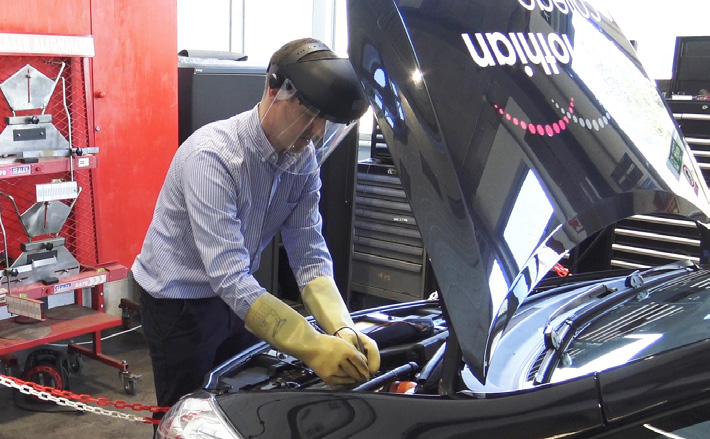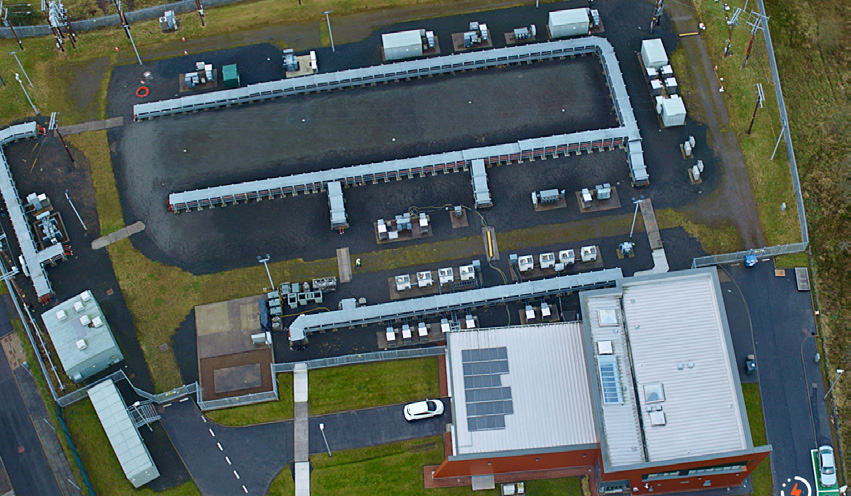Delivering the vision - Identify and Address Existing and Emerging Skills Gaps
Scotland should identify and address skills gaps across the product lifecycle and supply chain to ensure it is primed for the transition to zero emission mobility.
Case Study - Skills collaboration
Collaboration between Government, education and industry has been central to the initial work done to address the skills gaps in the transition to a zero carbon transport sector.

Transport Scotland has led on commissioning research to analyse the skills baseline and requirements including those for two important areas.
The first is the mass uptake of ultra-low emission cars and vans, to ensure that workers now and in the future have the skills they need to secure high quality and sustainable jobs.
The Ultra Low-Emission Vehicle Skills Baselining Study was published in November 2020.
Throughout that work, academic and business organisations, such as the SMTA, the IMI, ESP, Scottish Enterprise, Skills Development Scotland and SRPe were involved, to ensure a collaborative approach for developing the right skills base to meet the future market demands. This includes our ongoing work with ESP – previously the Energy Skills Partnership - to support Scottish colleges to build capacity and capability to provide EV skills training courses.
The second is the extent to which Scotland has the skills necessary to support the transition to low carbon/zero emission heavy duty vehicles. The final report on this (Skills for low carbon Heavy Duty Vehicles) was published in October 2021.
Transport Scotland is working with an industry-centred steering group (made up from representatives from skills delivery organisations, the automotive and road haulage industry, as well as a business operating in the zero emission heavy duty vehicles space) to guide the research and consider the issues raised in the final report. This will lead to an action plan of activities to address the key findings and to inform our priorities for our skills development activities.
Additional to these evidence-gathering exercises, Transport Scotland is supporting the implementation of Scotland’s Climate Emergency Skills Action Plan (CESAP) through participation in Skills Development Scotland’s Implementation Steering Group and the Scottish Government’s Green Skills Forum.
Transport Scotland is also developing a skills strategy setting out actions to make the most of the economic opportunity of the shift to zero emission mobility.
Priorities
Industry should continue to work with the Scottish Government on the Heavy Vehicles Skills Steering Group to address the issues raised in the Heavy Vehicles Skills Baselining final report. This will inform priorities for skills development activities in Scotland. Consideration could be given to similar work on skills development for niche and flexible forms of transport, which are of particular importance in city centres, in rural areas, in education and for specials needs groups. Examples include community/ social transport minibuses, school minibuses and the taxi sector.
Industry should continue to work with the Scottish Government to help develop a strategy for zero emission mobility skills to ensure Scotland is best placed to make the most of the economic opportunity.
Industry and Government should continue to support Scottish colleges and universities to develop and deliver the skills required to work safely with zero emission vehicles, high-value skills required to support innovation in the sector and the full range of business and management skills required to develop the industry.
Case Study - Driving the Electric Revolution Industrialisation Centre – Scotland
Driving the Electric Revolution Industrialisation Centre – Scotland (DER-IC Scotland), is a part of the UK network of Driving the Electric Revolution Industrialisation Centres. The centre has been established to support industry and government in delivering domestic supply chain growth to achieve net zero and capitalise on the related industrial opportunity, in Power Electronics, Machines and Drives (PEMD). The centre draws on capability in Scotland at Universities of Strathclyde (including NMIS and PNDC), Glasgow, Edinburgh and St Andrews (including Hydrogen Accelerator and LOCATE).
In 2021, the centre focussed on work with Industry and Government in Scotland to support supply chain growth.

< Previous | Contents | Next >